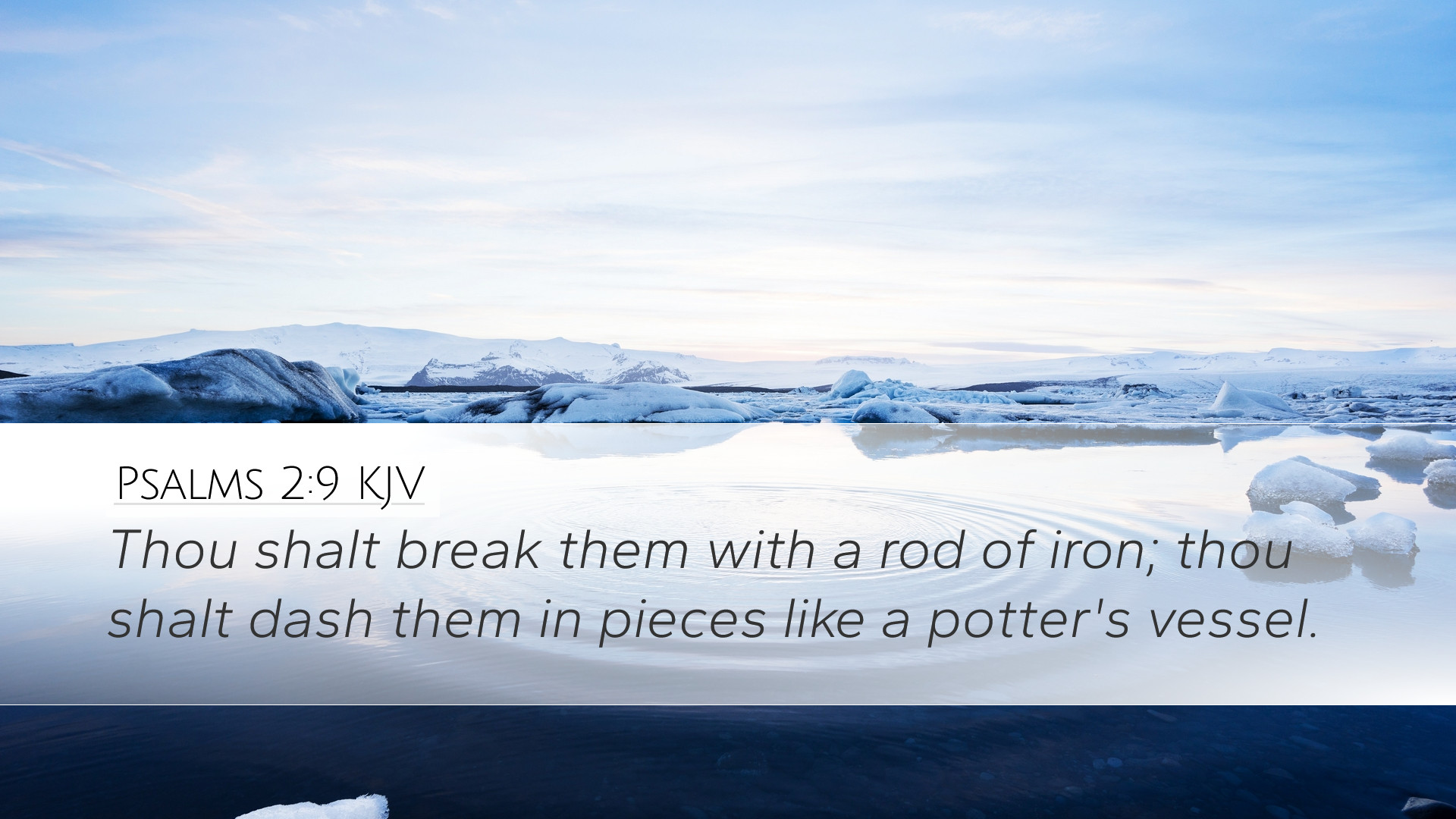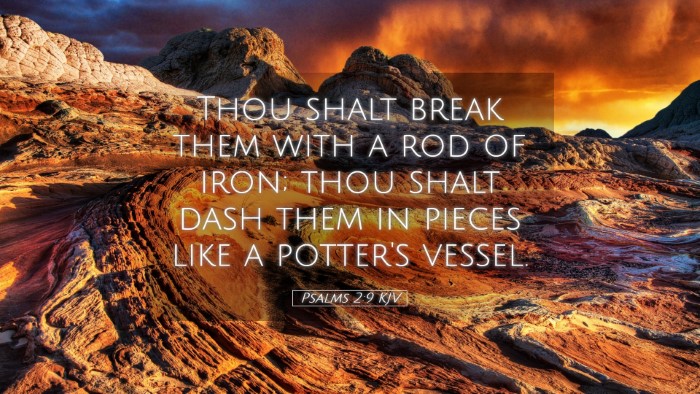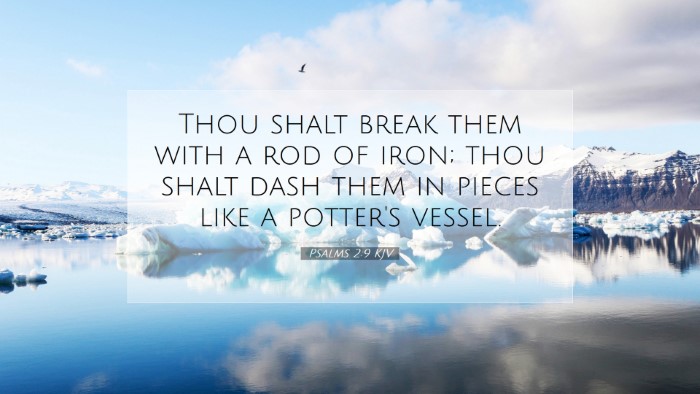Commentary on Psalms 2:9
Verse: "Thou shalt break them with a rod of iron; thou shalt dash them in pieces like a potter's vessel." (Psalms 2:9)
Introduction
This verse concludes a vivid depiction of divine authority and judgment found in Psalm 2, a psalm attributed to David, reflecting on the sovereignty of God and His anointed King. In the context of the psalm, it serves as a prophetic declaration concerning the Messiah and the power bestowed upon Him over the nations. This commentary seeks to delve into the implications, historical context, and theological significance of this verse by integrating insights from renowned public domain commentaries.
Historical Context
The psalm is thought to have been written during a time of political unrest and rebellion against God’s chosen leaders. David himself faced opposition from rival kings and factions. The nations’ conspiring against God’s anointed signifies the irreverence of human authority when it stands against divine sovereignty;
- Albert Barnes notes that the psalm begins with a depiction of rebellion by the nations, symbolizing a futility against divine decree.
- Matthew Henry emphasizes that God’s wrath is kindled against those who oppose His rule and that they will ultimately face judgment.
Thematic Analysis
Psalm 2 presents a dichotomy between the raging of earthly kings and the sovereign control of God, particularly through His anointed one. This dichotomy culminates in verse 9, which speaks to the power that God has granted His Messiah to execute judgment and establish His reign.
Divine Authority and Judgment
The metaphor of breaking with a rod of iron signifies absolute authority. The rod is a symbol of governance and correction:
- Adam Clarke interprets the "rod of iron" as a representation of the Messiah’s unyielding rule over the nations, emphasizing His strength and uncompromising justice.
- This imagery underscores that the rule of Christ will not be one of mere benevolence but will also involve decisive action against rebellion; the instruments of correction will be harsh for those who refuse His Lordship.
The Fate of the Wicked
The second clause of the verse—“thou shalt dash them in pieces like a potter's vessel”—reinforces the finality of God's judgment. The fragility of pottery illustrates how easily the rebellious powers will be shattered by the divine hand:
- Matthew Henry elucidates the significance of this metaphor, stating that just as a potter shatters clay vessels at will, so too, God will decisively destroy those that stand in opposition to His plans.
- Albert Barnes points out that this serves as both a warning and a comfort; it warns the unrighteous of their impending doom while comforting the faithful with the assurance of God’s ultimate triumph.
The Messianic Prophecy
This verse is often read in light of its prophetic significance concerning Christ's reign:
- Adam Clarke proposes that this psalm serves as an assurance to believers of Christ’s eventual dominion over all creation, a theme echoed in the Book of Revelation as well.
- Through this lens, the verse is interpreted as a foreshadowing of Christ’s second coming when He will establish perfect justice and righteousness over the earth.
Theological Implications
The implications of Psalms 2:9 are profound, impacting various theological constructs:
- God’s Sovereignty: In the face of worldly chaos, this verse reaffirms God’s absolute authority over the nations and His ability to execute His will, demonstrating that no power can thwart divine intentions.
- Judgment and Mercy: While it speaks of judgment, the psalm also serves as a reminder of God’s mercy offered through the gospel, inviting all to submit to His rule rather than face inevitable judgment.
- Hope for Believers: The assurance that Christ will triumph provides hope to the faithful, urging them to remain steadfast amidst trials, knowing their King possesses all authority.
Conclusion
Psalms 2:9 stands as a powerful declaration of the supremacy of God's authority and the role of His anointed one as judge over the nations. As pastors, theologians, and students of the Word, understanding this verse in its full context allows for a richer appreciation of the themes of sovereignty, judgment, and grace that run throughout Scripture.
May this psalm embolden believers to proclaim the Lordship of Christ with confidence, knowing that while the nations rage, our King reigns supreme, with the power to shatter opposition and establish an everlasting kingdom of peace and righteousness.


